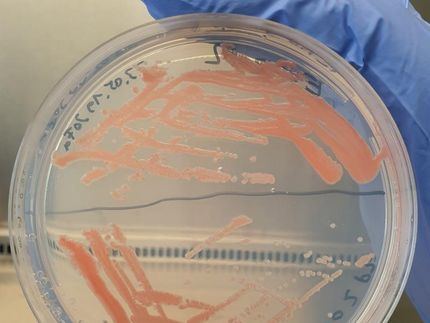CO₂ as a raw material: Power2Polymers sets milestone for climate-friendly chemistry
New materials with real added value
Advertisement
The BMFTR-funded research project Power2Polymers, a satellite of the Kopernikus project P2X, is sending a strong signal for the energy transition: For the first time, more sustainable Methanol from industrial waste gases has been successfully processed into paraformaldehyde on an industrial scale. This is a decisive step towards new materials and a genuine CO₂ circular economy.
CO₂ is notorious as a climate killer, but carbon dioxide can actively benefit the energy transition. This is impressively underlined by the BMFTR-funded Power2Polymers project. Project partner Prefere Paraform GmbH has processed two tons of more sustainable methanol, obtained from the industrial waste gases of a steelworks, into paraformaldehyde. This produces new types of polyols that can be used in adhesives, coating materials, lubricants and sealants in the future.
The special feature: The raw material itself has already been produced in a resource-saving way - in the Carbon2Chem project, which is also funded by the Federal Ministry of Education and Research and is currently refining and scaling up processes to convert CO₂ from industrial waste gases into methanol using hydrogen. Both projects are interlinked and together show how a sustainable value chain of the future will work: from waste gas to raw material, from raw material to product - on an industrial scale.
"We want to replace fossil raw materials and have demonstrated the feasibility of this: CO₂ can become a raw material for new products. Our success with polyols is concrete progress for climate protection and the circular economy," says Guido Schroer, Project Manager of Power2Polymers.
New materials with real added value
The newly developed PME polyols (polyoxymethylene ether) not only score points for climate protection. The aim is for them to offer concrete benefits for applications, including better material compatibility, shorter drying times and improved recyclability. Power2Polymers is not only focusing on research, but is also thinking about rapid implementation. A planned start-up is intended to make the materials directly accessible to the market.
Industrial partner Jowat, which is contributing its expertise in the field of adhesives to the project, is supporting the researchers. In this way, the results of the research will quickly find their way into application - for defossilized, regional production and greater independence from fossil raw materials.
Energy transition needs such chain reactions
Status quo: The chemical industry causes considerable CO₂ emissions. Almost every plastic today is based on crude oil. Power2Polymers shows an alternative for the future for special applications, closing a niche. CO₂ from industrial waste gases serves as the basis for methanol. This methanol is further processed into chemical intermediates, which in turn are used to create new, high-quality materials. In this way, a value-added cycle is built up step by step.
In terms of the energy transition, Power2Polymers is not a stand-alone project, but rather a cog in a large machine. It is interlinked with Carbon2Chem, one of the central BMFTR projects for a sustainable industry, and uses its results as a basis for its own results.
At the same time, Power2Polymers is docked as a satellite to the Kopernikus project P2X - another key project for the energy transition, also in the BMFTR funding canon. Together, these projects form a chain of innovations that leads from the laboratory to industry. The contact between the projects is thanks to the commitment of Prof. Walter Leitner (MPI CEC/RWTH Aachen).
Note: This article has been translated using a computer system without human intervention. LUMITOS offers these automatic translations to present a wider range of current news. Since this article has been translated with automatic translation, it is possible that it contains errors in vocabulary, syntax or grammar. The original article in German can be found here.
Other news from the department science
Most read news
More news from our other portals
Something is happening in the chemical industry ...
This is what true pioneering spirit looks like: Plenty of innovative start-ups are bringing fresh ideas, lifeblood and entrepreneurial spirit to change tomorrow's world for the better. Immerse yourself in the world of these young companies and take the opportunity to get in touch with the founders.

































































